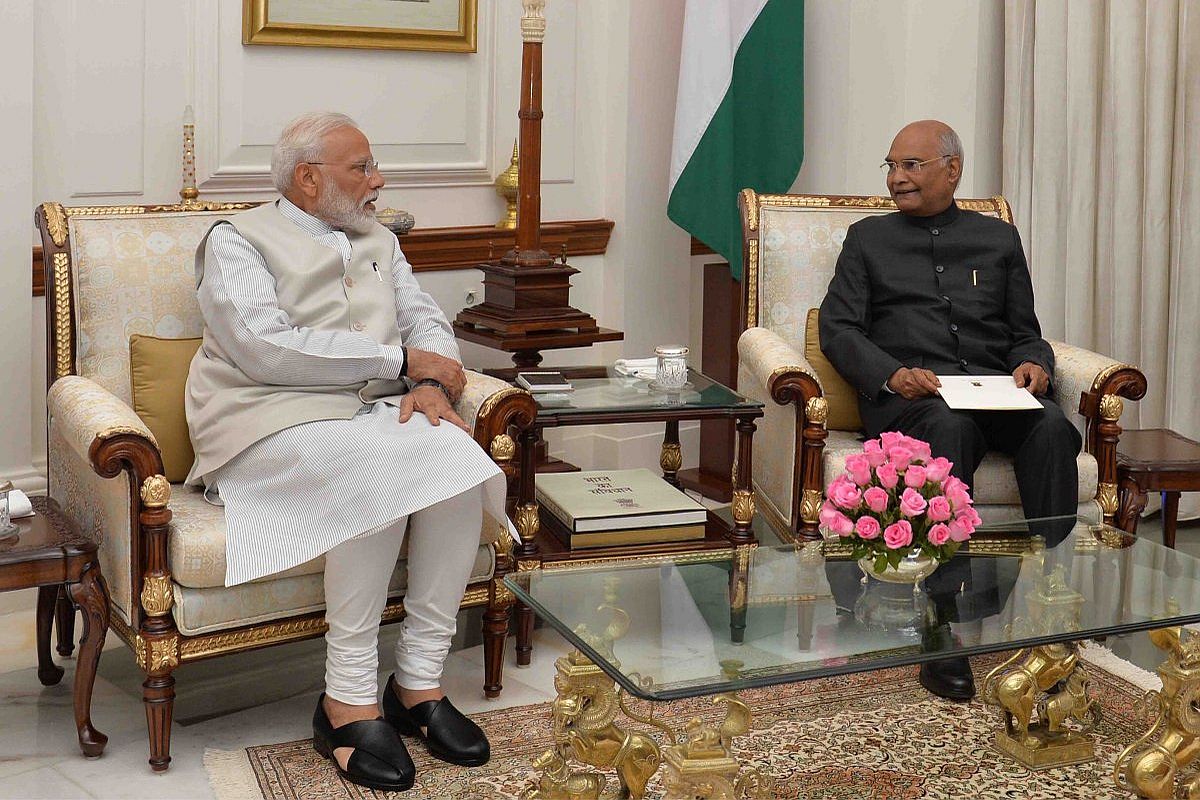Tovino Thomas leads voter turnout as Kerala polls heat up
Actor Tovino Thomas casts his vote in Thrissur as Kerala records impressive voter turnout. Key constituencies see fierce electoral battles in the second phase of Lok Sabha elections.
Bakr Eid is celebrated in the remembrance of the sacrifice made by Prophet Ibrahim, who willingly accepted to sacrifice his son, Ishmael on the command of God.

Prime Minister Narendra Modi and President Ram Nath Kovind. (File Photo: Twitter/@rashtrapatibhvn)
Prime Minister Narendra Modi and President Ram Nath Kovind on Monday greeted the nation on the occasion of Eid-al-Adha as the Muslim community across the country gathered at mosques to offer prayers.
PM Modi took to Twitter to wish the nation on the auspicious occasion.
My best wishes on the occasion of Eid al-Adha. I hope it furthers the spirit of peace and happiness in our society. Eid Mubarak!
Advertisement
— Narendra Modi (@narendramodi) August 12, 2019
President Ram Nath Kovind extended his Eid greetings and posted messages on the microblogging site in three languages – Hindi, English and Urdu.
“Eid Mubarak to all fellow citizens, especially to our Muslim brothers and sisters in India and abroad,” the President tweeted.
Eid Mubarak to all fellow citizens, especially to our Muslim brothers & sisters in India and abroad.
Idu’I Zuha symbolizes love, fraternity and service to humanity. Let us commit ourselves to these universal values that represent our composite culture #PresidentKovind
— President of India (@rashtrapatibhvn) August 12, 2019
Vice President Venkaiah Naidu also extended Eid greetings on Twitter.
“I extend my warm greetings to the people of our country on the auspicious occasion of ‘Id-ul-Zuha’ The festival is an ode to the virtues of devotion, faith and sacrifice and inspires feelings of brotherhood, compassion and unity. #IdulZuha (sic),” he wrote.
Eid-al-Adha, also known as Bakr Eid in India, is the tradition of sacrificing a goat or a sheep as prescribed by the Islam faith. It is marked on the 10th day of Dhul Hijjah, a spiritual journey that Islam made compulsory for all able-bodied Muslims and those who can afford it.
Bakr Eid is celebrated in the remembrance of the sacrifice made by Prophet Ibrahim, who willingly accepted to sacrifice his son, Ishmael on the command of God. Just when he was about to sacrifice his son, it was revealed to him that he was put to test by God who had replaced his son with a lamb.
Muslims begin celebrations by visiting mosques and offering Salat-Ul-Eid (prayer) on the first day of the festival. While returning from their prayers, they must take different routes on their way back to home as practised by Prophet Mohammed (PBUH).
People prepare themselves for this day by following the Sunnah of Prophet Muhammad (PBUH) which includes performing the Wudhu (Islamic procedure of cleansing body parts), paying extra attention to their personal cleanliness, dressing up in new clothes and applying perfume.
The significance of the festival is to make Muslims more virtuous in their deeds and to elevate them from the worldly desires. People offer sacrifices, special prayers, and exchange of greetings, gifts and delicacies. In some countries, people buy, keep and slaughter their own animals.
Meanwhile, Jammu and Kashmir witnessed muted Eid celebrations as Muslims offered prayers at local mosques amid heightened security.
In his speech to the nation on August 9 post the revocation of Article 370, Prime Minister Narendra Modi had assured that the people of the state would not face any trouble in celebrating Eid and that the situation in the valley will return to normal gradually.
In Kerala, with rains and subsequent floods battering the state for the past few days, celebrations in various parts was a low key affair, which started and ended with prayers.
The festival was celebrated in the Uttar Pradesh state capital amid tight security since it coincided with the last Monday of the month of ‘Sawan’, which is also being observed by Hindus.
Telangana Governor and Chief Ministers of Telangana and Andhra greeted Muslims on the occasion of Eid-ul-Adha on Monday.
Meanwhile, Bakr Eid was celebrated on Monday with fervour and enthusiasm across Meghalaya, predominantly a Christian state.
Advertisement